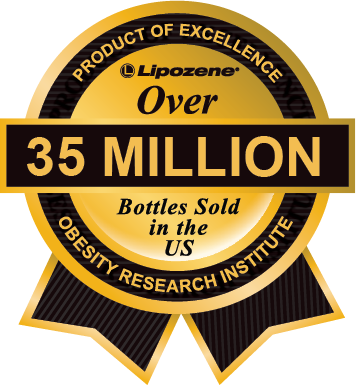




Obesity in the United States has become an epidemic, with more than 85% of adults projected to be overweight or obese by 2030. An obese person is characterized as someone with a body mass index (BMI) of 30 or higher. A BMI of 40 or higher is indicative of severe obesity. If you’re overweight, you know the negative affect that it can have on your quality of life as well as the physical stress it puts on your body. However, to make matters worse, obesity has also been linked to an increased risk for numerous diseases and medical issues, including diabetes, heart disease and some cancers.
So, why are so many Americans overweight? For one thing, it has been decades since American jobs involved working in fields or factories, which means more and more of us are sitting at a desk throughout our workday. In fact, research suggests that Americans are burning 120 to 140 fewer calories a day than they did 50 years ago! However, is this number of calories enough to contribute to the growing obesity epidemic? No, to uncover the real reason behind the staggering obesity rate in our country, we must take a hard look at the foods we consume.
America is famous for its fast food, super-sized sodas, and sugary snacks. However, the public has known for decades that these foods are not good for us in the quantities that we consume them. So why are the companies that produce these foods still in business? It’s not just due to poor willpower on the part of consumers, or because of the convenience that processed food offers those with busy lifestyles. Some studies suggest that many common, processed foods have actually been expertly engineered to keep us buying more. Food companies have employed scientists for decades to engineer a so-called “bliss point” and incorporate it into all of our favorite foods. The bliss point can be described as the perfect ratio of sugar, salt, and fat that will stimulate our taste buds enough to keep us wanting more without ever getting tired of the flavor. Have you ever started eating a bag of chips or candy, and felt unable to stop? Exactly.
Foods like these trigger our brain’s reward center. Every time you eat foods that are high in sugar, salt, and fat, your brain releases a surge of dopamine (the happy hormone), making you feel good. To make matters worse, repeated activation of your brains reward system causes it to adapt to avoid becoming overstimulated. Therefore, you need to consume more and more junk food in order to achieve the same feeling of happiness. Since food scientists realized the effect sugar, salt, and fat have on our brains, they have made a conscious effort to add these ingredients to pretty much everything, so they keep us coming back for more.
So now that you know how harmful processed foods can be, what can you do about it? Lucky for you, we’ve compiled some of the best tips to cut back on processed food.
If your diet consists of a large amount of processed food or fast food, try slowly easing yourself into a less processed diet. There is no need to quit this type of diet cold turkey, in fact, doing so could be overwhelming and cause you to give up on your new healthy habits. Instead, start by trying to make small steps toward healthier eating every day, that way you’re more likely to continue this journey for years to come.
The easiest way to cut down on your processed food intake is to focus on buying whole, natural foods. For example, potatoes instead of potato chips, lean ground beef instead of frozen burger patties, chicken breast instead of chicken nuggets, and so on. An easy way to remember this is to load up on fresh ingredients from the perimeter of the grocery store and try to buy as little as possible from the aisles in the middle, since that’s where most of the processed foods are.
When you do venture to the middle aisles of the grocery store, it is important to read nutrition labels. Reading labels is not something that most people are accustomed to doing. However, if you read the ingredients of some of your favorite foods, they may not be your favorite anymore. Be aware of saturated fat, sodium, and added sugars. Based on a 2,000 calorie diet the FDA recommends consuming less than 20 grams of saturated fat, less than 2,300 milligrams of sodium, and no more than 10% of daily calories from added sugar. Additionally, try to purchase food with real ingredients and as few ingredients as possible. If the nutrition label reads like a science experiment, you probably don’t want to put it in your body.
If the convenience factor is what keeps you coming back to junk food time and time again, try planning out your meals on the weekends. Our busy lives often leave us with no time to spend in the kitchen cooking. However, if you take some time to meal prep on the weekends or even the night before, it becomes a lot easier to skip the drive thru. Decide on three or four dishes that you can eat throughout the week and cook large batches of them when you have a free day. You can even pack each serving into individual containers so they’re easy to grab at lunch or dinnertime.
Feedback: